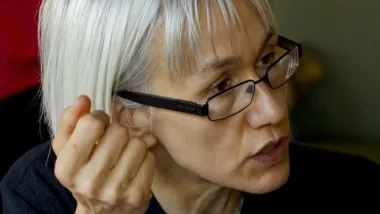One question I get asked a lot is if students should present at conference. In fact it is often more of a statement of intent rather than a question about whether it is useful. The answer, however, is not as clear as many students believe.

One question I get asked a lot is should students present at conference. In fact it is often more of a statement of intent rather than a question about whether it is useful. The answer, however, is not as clear as many students believe.
The basic issue is that there are many, many conferences these days, with low thresholds to entry or idiosyncratic selection based on the preferences of the organizer rather than quality. Presenting at a conference is not a big plus on your resume and for some people, who do a great deal of it without producing other work, it can raise questions about priorities. That is not to say it is a bad thing to do but it is not the unmitigated positive that some might assume.
Of course, there are good reasons students make such presentations.
- You can get practice in presenting in public.
- It can create a deadline.
- In some settings one can get useful feedback.
- Depending on who else is there, and how well it goes, it can provide contacts for jobs.
- It can publicize the academic program where the work was done.
- Going to a conference can give you a sense of professional norms.
These days there is such an information overload that there is a real question about whether one needs an additional information forum, however.
Of course students also ask about attending a conference and that raises a number of related questions:
- Is it an expensive conference with deep discounts for students—like the APA national conference? In this case going as a student has benefits.
- Will you learn new things or will it just cover things you can find out elsewhere? In the context of business conferences American Express suggests one metric is would “you have too much to share for a 20-minute presentation” to colleagues?
- Will you actually make contacts for jobs or at least get to know the job market better?
- Can you get ideas for improving your work?
- Can you network with other students in a way that is productive and really would not be possible via other means?
In the current period with so many channels of communication my sense is that the idea of the conference needs to be rethought. Asking serious questions about how useful such venues are is a good first step for students.

Planetizen Federal Action Tracker
A weekly monitor of how Trump’s orders and actions are impacting planners and planning in America.

Chicago’s Ghost Rails
Just beneath the surface of the modern city lie the remnants of its expansive early 20th-century streetcar system.

Amtrak Cutting Jobs, Funding to High-Speed Rail
The agency plans to cut 10 percent of its workforce and has confirmed it will not fund new high-speed rail projects.

Ohio Forces Data Centers to Prepay for Power
Utilities are calling on states to hold data center operators responsible for new energy demands to prevent leaving consumers on the hook for their bills.

MARTA CEO Steps Down Amid Citizenship Concerns
MARTA’s board announced Thursday that its chief, who is from Canada, is resigning due to questions about his immigration status.

Silicon Valley ‘Bike Superhighway’ Awarded $14M State Grant
A Caltrans grant brings the 10-mile Central Bikeway project connecting Santa Clara and East San Jose closer to fruition.
Urban Design for Planners 1: Software Tools
This six-course series explores essential urban design concepts using open source software and equips planners with the tools they need to participate fully in the urban design process.
Planning for Universal Design
Learn the tools for implementing Universal Design in planning regulations.
Caltrans
City of Fort Worth
Mpact (founded as Rail~Volution)
City of Camden Redevelopment Agency
City of Astoria
City of Portland
City of Laramie





























